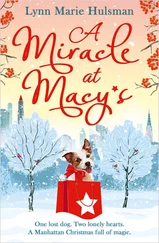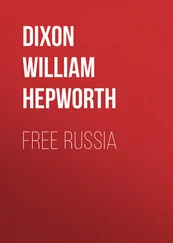Nikolai Nekrasov - Who Can Be Happy and Free in Russia?
Здесь есть возможность читать онлайн «Nikolai Nekrasov - Who Can Be Happy and Free in Russia?» весь текст электронной книги совершенно бесплатно (целиком полную версию без сокращений). В некоторых случаях можно слушать аудио, скачать через торрент в формате fb2 и присутствует краткое содержание. Год выпуска: 2005, Жанр: Поэзия, на английском языке. Описание произведения, (предисловие) а так же отзывы посетителей доступны на портале библиотеки ЛибКат.
- Название:Who Can Be Happy and Free in Russia?
- Автор:
- Жанр:
- Год:2005
- ISBN:нет данных
- Рейтинг книги:3 / 5. Голосов: 1
-
Избранное:Добавить в избранное
- Отзывы:
-
Ваша оценка:
- 60
- 1
- 2
- 3
- 4
- 5
Who Can Be Happy and Free in Russia?: краткое содержание, описание и аннотация
Предлагаем к чтению аннотацию, описание, краткое содержание или предисловие (зависит от того, что написал сам автор книги «Who Can Be Happy and Free in Russia?»). Если вы не нашли необходимую информацию о книге — напишите в комментариях, мы постараемся отыскать её.
Who Can Be Happy and Free in Russia? — читать онлайн бесплатно полную книгу (весь текст) целиком
Ниже представлен текст книги, разбитый по страницам. Система сохранения места последней прочитанной страницы, позволяет с удобством читать онлайн бесплатно книгу «Who Can Be Happy and Free in Russia?», без необходимости каждый раз заново искать на чём Вы остановились. Поставьте закладку, и сможете в любой момент перейти на страницу, на которой закончили чтение.
Интервал:
Закладка:
"The speeches of Klímka
Are short, and as plain
As the public-house signboard,"
Says Vlásuchka, joking.
"And that is his manner:
To start with a woman
And end in the tavern."
"Well, where should one end, then?
Perhaps in the prison?
Now—as to the taxes, 130
Don't croak, but decide."
But Vlásuchka really
Was far from a croaker.
The kindest soul living
Was he, and he sorrowed
For all in the village,
Not only for one.
His conscience had pricked him
While serving his haughty
And rigorous Barin, 140
Obeying his orders,
So cruel and oppressive.
While young he had always
Believed in 'improvements,'
But soon he observed
That they ended in nothing,
Or worse—in misfortune.
So now he mistrusted
The new, rich in promise.
The wheels that have passed 150
O'er the roadways of Moscow
Are fewer by far
Than the injuries done
To the soul of the peasant.
There's nothing to laugh at
In that, so the Elder
Perforce had grown gloomy.
But now, the gay pranks
Of the peasants of "Earthworms"
Affected him too. 160
His thoughts became brighter:
No taxes … no barschin …
No stick held above you,
Dear God, am I dreaming?
Old Vlásuchka smiles….
A miracle surely!
Like that, when the sun
From the splendour of Heaven
May cast a chance ray
In the depths of the forest: 170
The dew shines like diamonds,
The mosses are gilded.
"Drink, drink, little peasants!
Disport yourselves bravely!"
'Twas gay beyond measure.
In each breast awakens
A wondrous new feeling,
As though from the depths
Of a bottomless gulf
On the crest of a wave, 180
They've been borne to the surface
To find there awaits them
A feast without end.
Another pail's started,
And, oh, what a clamour
Of voices arises,
And singing begins.
And just as a dead man's
Relations and friends
Talk of nothing but him 190
Till the funeral's over,
Until they have finished
The funeral banquet
And started to yawn,—
So over the vodka,
Beneath the old willow,
One topic prevails:
The "break in the chain"
Of their lords, the Pomyéshchicks.
The deacon they ask, 200
And his sons, to oblige them
By singing a song
Called the "Merry Song" to them.
(This song was not really
A song of the people:
The deacon's son Grisha
Had sung it them first.
But since the great day
When the Tsar, Little Father,
Had broken the chains 210
Of his suffering children,
They always had danced
To this tune on the feast-days.
The "popes" and the house-serfs
Could sing the words also,
The peasants could not,
But whenever they heard it
They whistled and stamped,
And the "Merry Song" called it.)
CHAPTER I
BITTER TIMES—BITTER SONGS
The "Merry Song" finished,
They struck up a chorus,
A song of their own,
A wailing lament
(For, as yet, they've no others).
And is it not strange
That in vast Holy Russia,
With masses and masses
Of people unnumbered,
No song has been born 10
Overflowing with joy
Like a bright summer morning?
Yes, is it not striking,
And is it not tragic?
O times that are coming,
You, too, will be painted
In songs of the people,
But how? In what colours?
And will there be ever
A smile in their hearts? 20
"Eh, that's a fine song!
'Tis a shame to forget it."
Our peasants regret
That their memories trick them.
And, meanwhile, the peasants
Of "Earthworms" are saying,
"We lived but for 'barschin,'
Pray, how would you like it?
You see, we grew up
'Neath the snout of the Barin, 30
Our noses were glued
To the earth. We'd forgotten
The faces of neighbours,
Forgot how to speak.
We got tipsy in silence,
Gave kisses in silence,
Fought silently, too."
"Eh, who speaks of silence?
We'd more cause to hate it
Than you," said a peasant 40
Who came from a Volost
Near by, with a waggon
Of hay for the market.
(Some heavy misfortune
Had forced him to sell it.)
"For once our young lady,
Miss Gertrude, decided
That any one swearing
Must soundly be flogged.
Dear Lord, how they flogged us 50
Until we stopped swearing!
Of course, not to swear
For the peasant means—silence.
We suffered, God knows!
Then freedom was granted,
We feasted it finely,
And then we made up
For our silence, believe me:
We swore in such style
That Pope John was ashamed 60
For the church-bells to hear us.
(They rang all day long.)
What stories we told then!
We'd no need to seek
For the words. They were written
All over our backs."
"A funny thing happened
In our parts,—a strange thing,"
Remarked a tall fellow
With bushy black whiskers. 70
(He wore a round hat
With a badge, a red waistcoat
With ten shining buttons,
And stout homespun breeches.
His legs, to contrast
With the smartness above them,
Were tied up in rags!
There are trees very like him,
From which a small shepherd
Has stripped all the bark off 80
Below, while above
Not a scratch can be noticed!
And surely no raven
Would scorn such a summit
For building a nest.)
"Well, tell us about it."
"I'll first have a smoke."
And while he is smoking
Our peasants are asking,
"And who is this fellow? 90
What sort of a goose?"
"An unfortunate footman
Inscribed in our Volost,
A martyr, a house-serf
Of Count Sinegúsin's.
His name is Vikénti.
He sprang from the foot-board
Direct to the ploughshare;
We still call him 'Footman.'
He's healthy enough, 100
But his legs are not strong,
And they're given to trembling.
His lady would drive
In a carriage and four
To go hunting for mushrooms.
He'll tell you some stories:
His memory's splendid;
You'd think he had eaten
The eggs of a magpie." [55] There is a Russian superstition that a good memory is gained by eating magpies' eggs.
Now, setting his hat straight, 110
Vikénti commences
To tell them the story.
Интервал:
Закладка:
Похожие книги на «Who Can Be Happy and Free in Russia?»
Представляем Вашему вниманию похожие книги на «Who Can Be Happy and Free in Russia?» списком для выбора. Мы отобрали схожую по названию и смыслу литературу в надежде предоставить читателям больше вариантов отыскать новые, интересные, ещё непрочитанные произведения.
Обсуждение, отзывы о книге «Who Can Be Happy and Free in Russia?» и просто собственные мнения читателей. Оставьте ваши комментарии, напишите, что Вы думаете о произведении, его смысле или главных героях. Укажите что конкретно понравилось, а что нет, и почему Вы так считаете.











